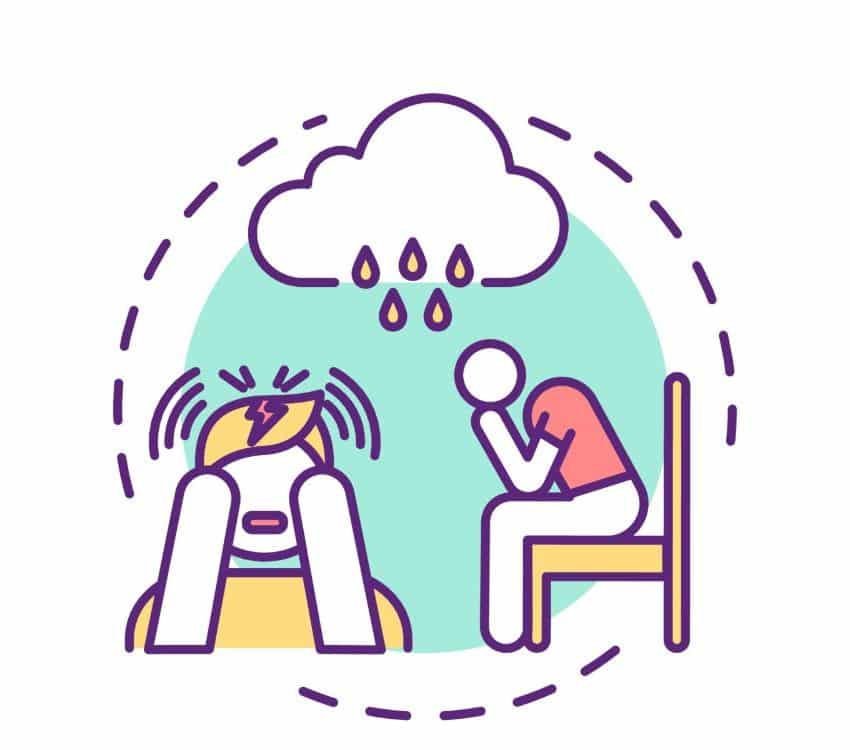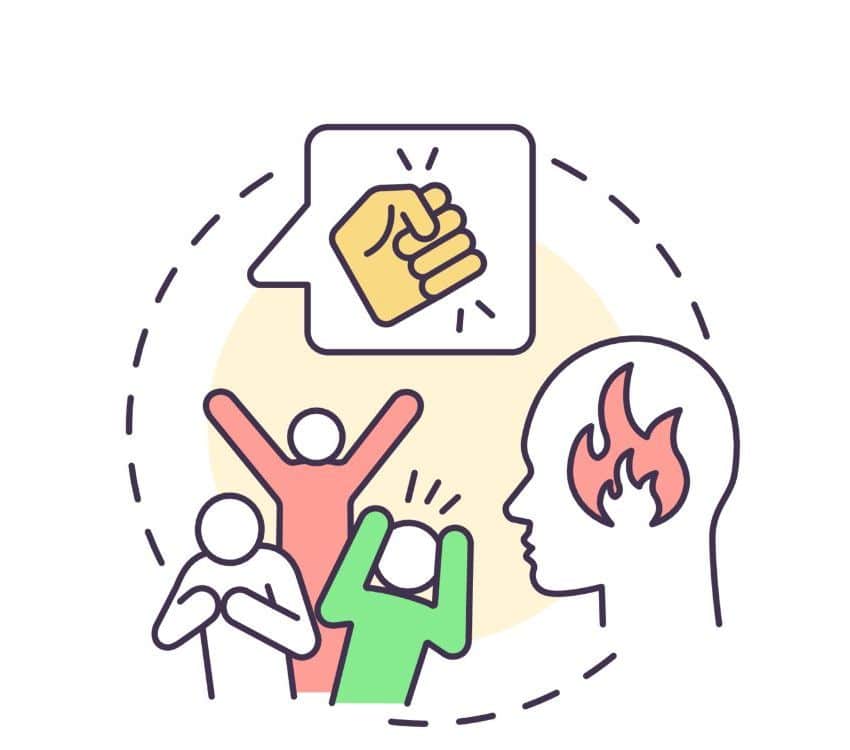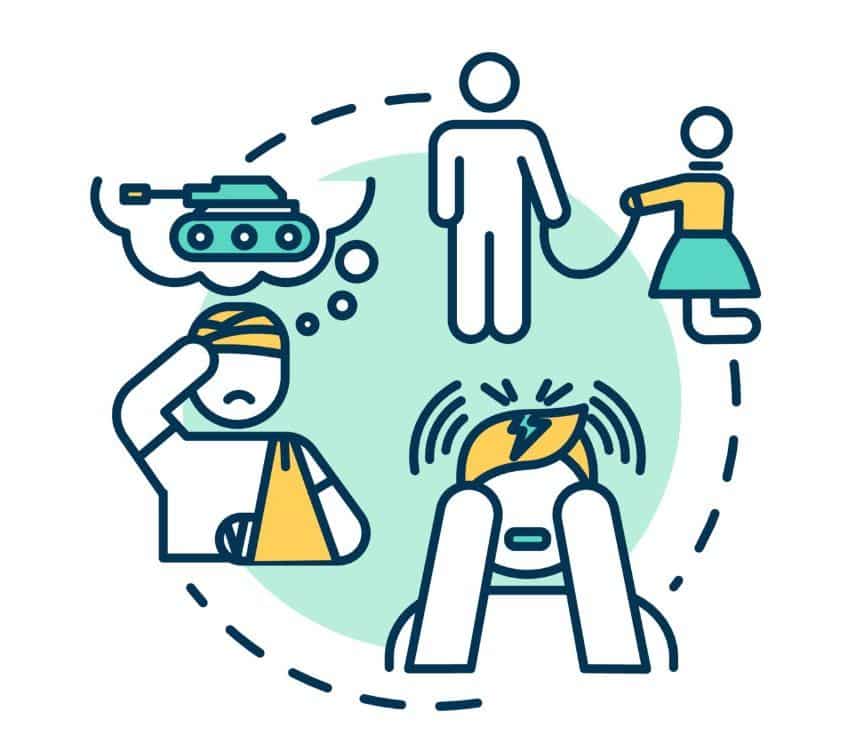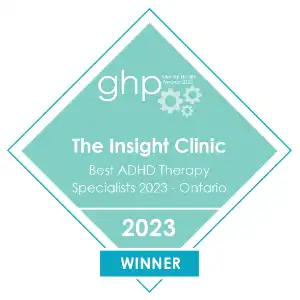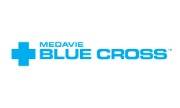DBT or CBT? What are they? Who needs it
What is DBT?
DBT or CBT? To understand DBT, I’ll start one step behind with CBT or Cognitive Behavioral Therapy. This is a psycho-social intervention aimed at providing people with an improved state of mental health. CBT focuses on training sufferers to regulate their intense or destructive reactions and to alter distorted cognitive skills and behaviors. It further teaches strategies for coping with intense emotions by themselves, enhancing their innate problem-solving abilities.
Dialectical Behaviour Therapy, or DBT, is based on CBT, focusing more on emotional and social attributes. Where CBT aims at identifying and changing negative thinking patterns to create positive behavioral changes, DBT was developed to help people cope with extreme, erratic, or unstable emotions and harmful behaviours.
DBT is an evidence-based approach to help people regulate their overwhelming feelings and may be used to treat suicidal and other self-destructive behaviours.
Can CBT and DBT be used interchangeably? Is there any difference?
DBT or CBT are similar in that they are effective psychotherapies modelled on how thoughts, feelings, and behaviors work together. Both also use talk therapy to increase clients’ self-awareness, re-evaluate self-destructive behaviors, and form healthier habits.
CBT focuses on showing you how your feelings, thoughts, and behaviour influence each other. DBT does the same but emphasizes regulating emotions, being mindful, and learning to accept pain.
Where CBT works towards helping clients recognize and change problematic thoughts and/or behaviour, DBT works towards helping clients regulate intense emotions and improve interpersonal relationships through validation, acceptance and behavior change.
The Impact of Covid-19 on Mental Health. Can DBT or CBT Help?
Many in the mental health field thought the Covid-19 pandemic would negatively tip people over the edge. Thankfully this was not the case, according to data gathered by the Center for Suicide Prevention in Feb 2021.
The numbers, fortunately, did not rise as expected. Albeit, depression and anxiety increased due to the pandemic, which may lead to worsening mental health if not caught pre-emptively.
DBT or CBT is a viable mental health option if you or someone you love struggles to regulate your emotions. If the person suffering finds their feelings overwhelming and has begun to seriously interfere with their relationships, work, school, or goals, what steps do they take to overcome it?
For most suffering from extremely uncontrollable emotions, taking any action feels incapacitating. So most times, they find themselves unable to reach out. Here a support system of loved ones acts as an umbrella.
People in such instances may find DBT or CBT helpful, just as it has proved to be in cases of Borderline Personality Disorder (BPD), PTSD, depression, anxiety, or a substance abuse disorder. At the Insight Clinic, our DBT skills group works towards helping you better cope with your intense emotions.
How does DBT help?
DBT targets issues that certain mental ill-health conditions may cause, such as extreme distress and dysfunction. DBT training helps you learn crucial skills to deal with unhealthy mental impediments. It allows sufferers to focus beyond suicidal thoughts, self-harm, or other problematic strategies, which may seem like the only way out of an intense situation in times of distress.
DBT is a combined strategy of using behavior therapy (change orientation) and validation (acceptance orientation). Sufferers may fall under three categories:
- those suffering from life-threatening behaviour patterns,
- those affected by therapy-interfering behaviour patterns, and
- those afflicted with quality-of-life-interfering behaviour patterns.
In all three cases, a DBT or CBT specialist will choose to discuss pre-eminent or approaching risks rather than go over past patient behavior, to change present or future repercussions of harmful thoughts.
Dialectical Behavior Therapy (DBT) is proven in clinical research to help people with the following problems:
- Borderline Personality Disorder
- Chronic feelings of nothingness or emptiness
- Depression in older adults
- Difficulty developing and maintaining healthy relationships
- Intense emotions (i.e. anger, sadness, fear)
- Substance abuse/Impulsive behaviors (i.e., shoplifting, high-risk sex, etc.)
- Suicidal Adolescents
- Suicidal Behavior/Self-Injurious Behavior
Conclusion
If you or someone you know seems unable to move forward from repressive, negative thinking or has been clinically diagnosed with any of the above, contact us at the Insight Clinic. We provide the best online Psychotherapy and Counseling Programs accessible for DBT or CBT therapy in Ontario, Canada, for you. Life is beautiful, and you can be in control of it. Start by taking those first steps with DBT or CBT therapy. Contact us today.





